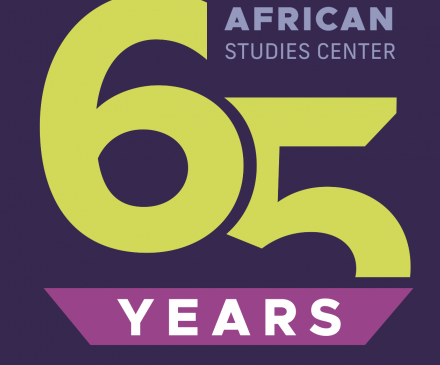Events
 Back to Events
Back to Events
- Date:
- Thursday, 10 Oct 2019
- Time:
- 12:00 p.m. to 1:30 p.m.
- Location:
- Room 201, International Center
- Department:
- African Studies Center
ABOUT THE SPEAKER:
Elizabeth Schmidt is professor emeritus of history at Loyola University Maryland. She received her Ph.D. from the University of Wisconsin and has written extensively about US involvement in apartheid South Africa, women under colonialism in Zimbabwe, the nationalist movement in Guinea, and foreign intervention in Africa from the Cold War to the war on terror. Her books include: Foreign Intervention in Africa after the Cold War: Sovereignty, Responsibility, and the War on Terror (Athens: Ohio University Press, 2018); Foreign Intervention in Africa: From the Cold War to the War on Terror (New York: Cambridge University Press, 2013); Cold War and Decolonization in Guinea, 1946-1958 (Athens: Ohio University Press, 2007); Mobilizing the Masses: Gender, Ethnicity, and Class in the Nationalist Movement in Guinea, 1939-1958 (Portsmouth, NH: Heinemann, 2005); Peasants, Traders, and Wives: Shona Women in the History of Zimbabwe, 1870-1939 (Portsmouth, NH: Heinemann, 1992); and Decoding Corporate Camouflage: U.S. Business Support for Apartheid (Washington, DC: Institute for Policy Studies, 1980).
ABOUT THE TALK:
To outsiders, the word "Africa" often conjures up images of a continent in crisis, riddled with war and corruption, imploding from disease and starvation. Africans are regularly blamed for their plight. The proposed talk challenges such popular myths. By examining the historical roots of contemporary problems, it demonstrates that many of the predicaments that plague the continent today are not solely the result of African decisions, but also the consequence of foreign intrusion into African affairs. During the Cold War and its aftermath, dictators, warlords, and insurgents supported by outside powers manipulated local ethnic, political, and religious tensions for their own ends. When strongmen were overthrown or cut adrift, other opportunists, including international terrorist networks, filled the power vacuums.
Focusing on foreign political and military intervention in Africa during the quarter century after the Cold War (1991–2017), the proposed talk explores the rationales used to justify foreign political and military intervention, the purpose of those interventions, and their consequences. It examines outside involvement as a response to instability, the responsibility to protect civilian lives, and as part of the global war on terror. General points are illustrated by case studies from across the continent. Special attention is paid to the role of the United States from the Bill Clinton administration through the first year of the Trump administration.



